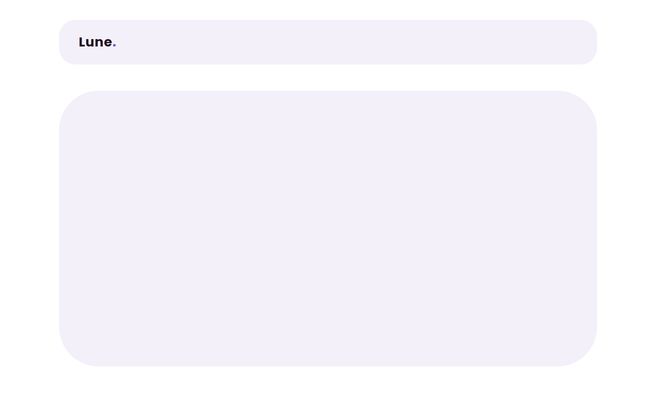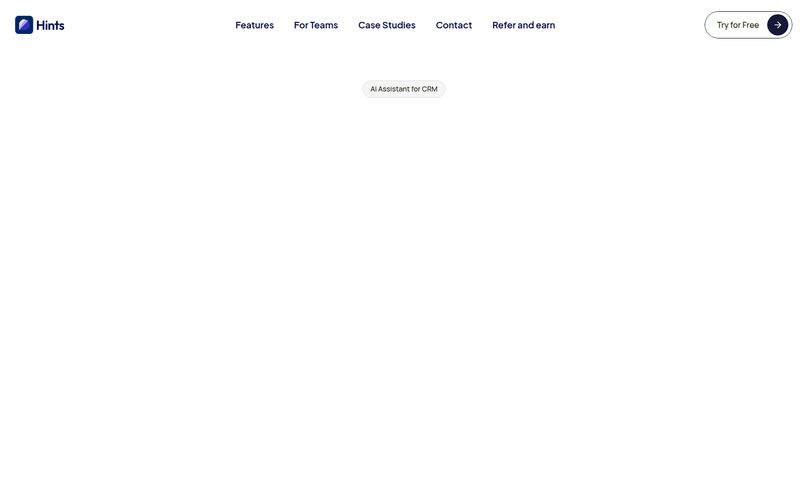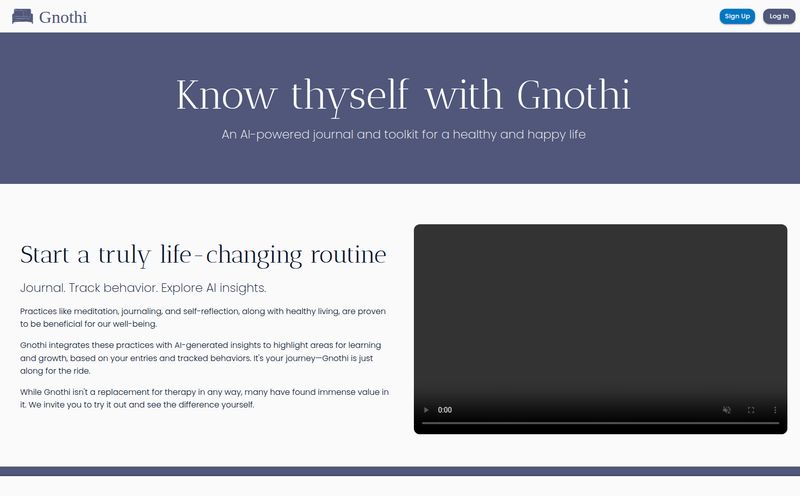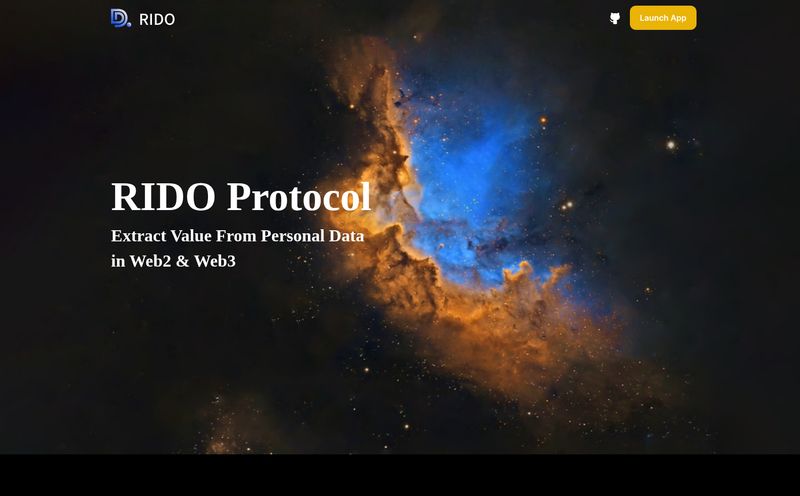How many of us have a digital graveyard of language apps on our phones? You know the ones. You download them with a fiery passion, determined that this time you’ll finally learn Italian. You do a week of lessons, learn how to say “the boy eats the apple,” and then… life happens. The app gets buried in a folder, a silent monument to your linguistic ambitions.
I've been in the SEO and traffic game for years, and I’ve seen trends come and go. But the recent explosion in AI tools has been something else entirely. It’s changing everything, from how we write content to how we generate images. So when I heard about Lune, a language app that supposedly uses AI to create a truly personalized learning path, my curiosity was definitely piqued. Could this be the app that finally breaks the cycle? An app that actually adapts to me instead of forcing me down a pre-set, one-size-fits-all path? I had to find out.
Beyond the Gamification: What Makes Lune Different?
First impressions? The app is… clean. Almost surprisingly so. In a world of screaming notifications and cartoon mascots, Lune’s interface is minimalist and focused. It feels less like a game and more like a serious tool. A quiet, confident assistant rather than a hyperactive cheerleader.

Visit Lune
But the real magic isn't on the surface. Most language apps follow a very linear track. You complete Level 1, then Level 2, and so on. It doesn't matter if you already know half the words in Level 1 or if you're struggling with one specific concept. The track is the track. Lune throws that playbook out the window. It uses AI to figure out what you know and, more importantly, what you don't. Think of it like a personal language tutor who has a perfect, photographic memory of every word you’ve ever stumbled on. Instead of giving you the next generic lesson, it builds a lesson specifically designed to patch the holes in your knowledge.
A Closer Look at Lune's Learning Engine
Okay, so “AI-powered” is a great buzzword, but what does it actually mean in practice? How does it feel to use?
The AI That Actually Listens
This is the core of it all. As you interact with the app, it’s constantly tracking your vocabulary. When it generates new content for you—whether it's a reading exercise or a guided lesson—it's woven with words you’re shaky on and new words that are just a tiny step beyond your current reach. It's a subtle thing, but it's powerful. You feel challenged but never overwhelmed. It's the difference between climbing a staircase and trying to scale a sheer cliff face. One feels manageable; the other makes you want to give up.
More Than Just Tapping Tiles
I get bored easily. I admit it. Tapping flashcards and matching words can only hold my attention for so long. Lune seems to get this. It mixes up the learning methods, offering a blend of conversation practice, guided learning, and reading. This variety is crucial because we all learn differently. Some of us are auditory learners who need to hear and speak the words. Others are visual learners who benefit from seeing words in the context of a story. By providing multiple paths, Lune caters to these different styles and, honestly, just keeps things from getting mind-numbingly repetitive. It's a much more holistic approach to actually acquiring a language, not just memorizing vocabulary.
Your Own Personal Word Hoard
One of the slickest features is the vocabulary tracking. The app keeps a running tally of the words you're learning, and it knows which ones are giving you trouble. This is gold. It will then prompt you with smart reminders, bringing those tricky words back at just the right moment before you forget them. This concept, known as spaced repetition, isn't new, but Lune's AI-driven implementation feels more intuitive and less robotic than other systems I've used. It feels less like a nagging notification and more like a helpful nudge from a friend.
A Little Friendly Competition
You can also share your progress with friends who use the app. This is a nice touch for those of us motivated by a bit of accountability or friendly rivalry. See a friend pull ahead in their vocabulary count? Might just be the push you need to log in for a quick ten-minute session. My only minor quibble here is that it's a closed loop—you can only share with other Lune users. But that's pretty standard for these kinds of features.
My Honest Take: The Good and The Things to Know
So, what's the final verdict? I'm genuinely impressed. What I really loved was the personalization. It felt like the app was working for me, not just processing me as another user. The blend of learning styles is a massive plus, and the intelligent vocabulary tracking is something I think every serious language learner will appreciate. It feels like a tool built on sound pedagogical principles, not just gamification hacks.
Now, for the quirks. The app's biggest strength is also its biggest demand: it requires consistency. Because it’s building a dynamic profile of your skills, you get the best results by showing up regularly. This isn’t a flaw, per se—you can't learn a language without practice—but it’s something to be aware of. This is a tool for the committed. Also, as I mentioned, the progress sharing is limited to the Lune ecosystem. Not a deal-breaker, but worth noting.
The All-Important Question: How Much Does Lune Cost?
This is the part of the review where I'd normally break down a pricing table. But Lune seems to be playing its cards close to the chest. I couldn't find a public pricing page on their website, which is a common strategy for app-first platforms. Your best bet is to go directly to the source. Check out the Lune page on the Apple App Store or Google Play Store for the most up-to-date information on any subscription costs, tiers, or free trial periods. Prices can vary by region and promotions, so that’s the only way to know for sure.
Is Lune the Right Language App For You?
Who is this for? In my opinion, Lune is perfect for the learner who's felt frustrated by the rigid structure of other apps. It's for the intermediate student who has hit a plateau and needs a smart tool to help them push through it. It's also fantastic for a dedicated beginner who wants to build a strong foundation from day one. If you’re self-motivated and appreciate a tool that adapts to you, I think you'll feel right at home. If you need a more game-like experience with lots of external rewards to stay motivated, it might feel a bit spare. It's less of a game and more of a training partner.
Your Questions About Lune, Answered
Frequently Asked Questions
How is Lune different from other big language apps?
The main difference is the deep personalization. While other apps follow a set, linear path for all users, Lune's AI actively analyzes your specific vocabulary and progress to create lessons and reading material tailored just for you. It's a dynamic vs. static approach.
What languages can I learn on Lune?
The list of available languages on apps can change and expand over time. The best way to get the latest information is to check the app's official listing on the Google Play Store or Apple App Store.
Is Lune good for a total beginner?
Absolutely. Because the AI assesses your level from the very beginning (even if that level is zero), it can build a foundational learning path that's appropriate for a complete novice. It won't throw you into the deep end.
Does the app have speech recognition for conversation practice?
The app incorporates conversational practice as one of its core learning methods. This is designed to get you comfortable with the flow and structure of real dialogue, moving you beyond just isolated words.
Do I need to be online to use Lune?
Many modern learning apps require an internet connection for the AI to function and sync your progress. However, some offer limited offline modes. It's best to check the app's features list or FAQ in the app store for specifics on offline capabilities.
The Final Word on Lune
Lune is an exciting step forward for language learning technology. It's a smart, sophisticated tool that puts the learner, not the curriculum, at the center of the experience. No, it won't magically make you fluent overnight—the hard work of memorization and practice is still on you. But it might just be the smartest, most efficient, and most engaging training partner you could ask for on that journey. If you're ready to leave the app graveyard behind and try something that feels genuinely new, I’d say Lune is absolutly worth a download.
References and Sources
- Spaced Repetition: https://en.wikipedia.org/wiki/Spaced_repetition
- Apple App Store: https://www.apple.com/app-store/ (Users should search for "Lune Language Learning")
- Google Play Store: https://play.google.com/store (Users should search for "Lune Language Learning")



